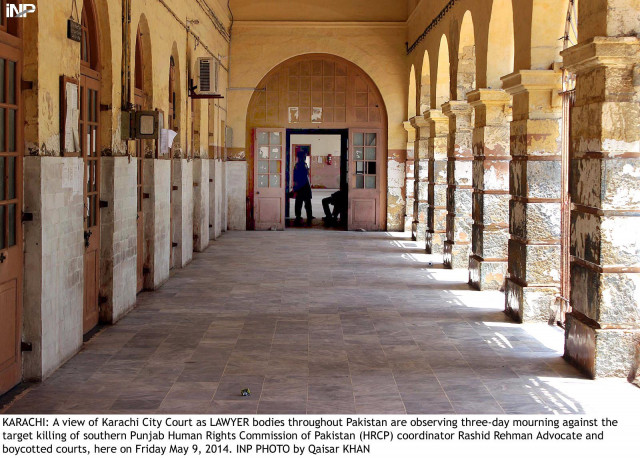Governing rights: Gilgit-Baltistan lawyers demand constitution for region
Legal fraternity, lawmakers unhappy with the empowerment order of 2009.

The legal fraternity demanded necessary amendments be made to the G-B Empowerment and Self-governance Order 2009 so the assembly can form its own constitution and work on legislation.
The order, introduced in 2009, gave G-B the status of a de facto province which means it has a legislative assembly but is governed by a council chaired by Prime Minister Nawaz Sharif. As a disputed territory, G-B does not come under the Constitution of Pakistan in its entirety but is administered by Pakistan. The self-governance order has so far failed to satisfy regional lawmakers and lawyers, who want a constitution to replace the order.
“A provision must be added to the 2009 order to make the assembly a constitutional one. Similarly, future elections should be held for a G-B constitutional assembly instead of a legislative one,” stated the G-B Supreme Appellate Court Bar Association President, Advocate Shahbaz Khan, as he spoke to reporters on Wednesday.
“The existing governance order falls well short of our expectations and makes us third-grade citizens.”
Shahbaz Khan, flanked by senior lawyers, including Mir Akhlaq and Ehsan Ali, suggested the G-B Council in the Centre be upgraded to the Upper House and maintain 100% local representation. “Currently G-B has less than 45% representation in the council and this does not allow them to pass legislation on key issues such as energy, forests and minerals.”
Lawyers suggested Pakistan take a leaf out of India’s book and follow the constitutional arrangement made for occupied Kashmir by the neighbouring country.
“Under Article 370 of the Indian Constitution, occupied Jammu and Kashmir was given constitutional status and therefore has full representation in the Centre since 1948,” Khan said.
The legal fraternity also voiced their concern over the appointment of judges that weren’t from the region. “We have competent individuals and do not need ‘imported’ ones,” Khan said.
Published in The Express Tribune, September 11th, 2014.


















COMMENTS
Comments are moderated and generally will be posted if they are on-topic and not abusive.
For more information, please see our Comments FAQ